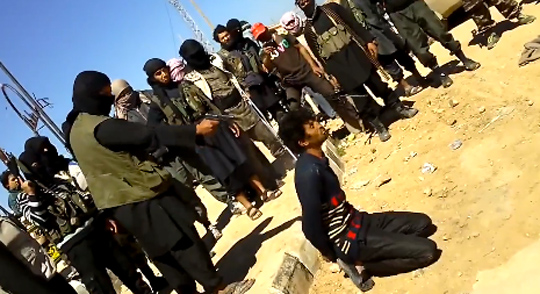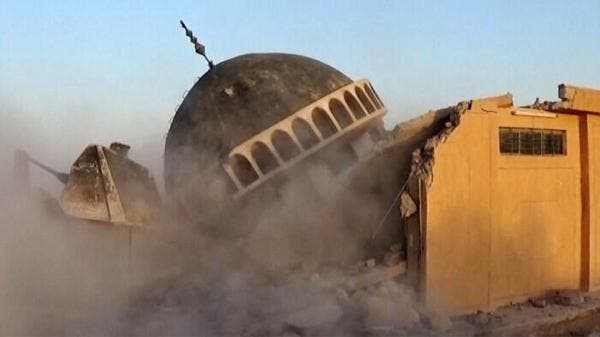By Toaha Qureshi, MBE – Chairman FIRD

Nothing is constant in world politics. An enemy of decades could become a friend all seasons all of a sudden. The same happened between the West and Iran recently, which once strong foes, are now bedfellows.
It was a strange day in UK when, on 17th of June, all of us were stunned by Willam Hague’s announcement of reopening the British Embassy in Iran.
According to Hague the “circumstances were right” to make this move. David Cameron, also, in his latest address said that Islamist threat was our problem and that it may come back to hit us in the UK.
For many, it was a shock indeed. But for people like me, keeping a track of political developments, it was something expected. This expectation came from the repercussions that many of us were expecting when Saudi and Gulf states, along with the West, starting funding anti-Assad salafist groups in Syria.
Once again, the world political leaders, like before, are making two major errors.
First and foremost, the ISIS and Iraq problem is seen on a macro level, calling it a Sunni Islamist problem, without admitting it as a mistake resulting from a backlash of handing over the state affairs to Shi’ites in a Sunni majority Iraq.
Secondly, more than a Sunni Islamist problem, it is a Salafi, a minority fundamentalist movement in Islam, problem pitted against the Shi’ites in the Middle East.
So how did this all change, and how a state like Iran, tagged in the Axis of Evil, became a favorable ally for the West? And what stemmed the spiral of recent conflict in Iraq?
It was Iran’s status as the most stable country in the Middle East along with its anti-Salafist aims that forced the move.
The ISIS – Islamic State in Iraq and Syria – is an unrecognized state and a militant group active in Iraq and Syria, supported by the Salafist movements, aims at establishing a jihadist state in the Middle East.
The ISIS is also called the Islamic State in Iraq and Levant (ISIL) where Levant signifies the areas covering Lebanon, Israel, Jordan, Syria, Cyprus and Southern Turkey.

In its heydays, the ISIS was being funded by Gulf States mainly Saudi Arabia and Qatar, giving it enough resources to sustain for long. With the current crisis in Iraq initiated by the ISIS, their source of income is mainly based on bank robberies and protection of drug rackets. According to the BBC, the group may have close to US$2 Billion (1.2 Billion GBP) in financial reserves.
Iran and Syria had recently offered to lend help in countering the ISIS in Iraq. It seems as if the West took the offer seriously and is now trying to reach out to Iran.
But people shouldn’t expect much from this alliance as both the parties have a common goal of countering the Salafists in the Middle East.
Furthermore, as we have witnessed from the past experiences, whenever the US makes an alliance with a Muslim state, it never ends well. The prime example was the US abandoning Pakistan after the Soviet Jihad in Afghanistan in the 80’s. The second example was the United States’ alliance in the 90’ with Iraq, which also lasted only one decade.
This time around, it also seems as if the US and its western allies will use and dispose Iran once their aims are achieved.
For me, this alliance will be a simple case of trapping Iran in a quagmire which was created by the US and its allies in Iraq, and is now unable to handle.
The US, just like the past, although excitedly carried out the Iraq adventure in its pursuit of War against Terror, yet failed to establish peace and stability. The only exception of US adventures in Bosnia and Herzegovina, whose peace was primarily linked to its location in the European continent. But even if you interact with Bosnians, they feel as they are living an artificial state created in haste by the US for its own convenience.
It seems as if we will never learn from history. We made a major blunder in Iraq by invading it on false claims – claims of WMD’s within 45 minutes from the UK, which are still arrogantly defended by the then PM Tony Blair.
What did the Iraq War give to the UK?
A war that even Nick Clegg, the Deputy FM, called as Illegal in 2010.
Moreover, even excluding the Afghan war, the Iraq, Syrian and Libyan adventures have cost us billions of pounds, not to ignore the mammoth figure of 300,000 innocent casualties.
In midst of these chaotic developments, Iran also needs to play safe, without showing its excitement on West’s offers.
If Iran eventually gets sucked into the conflict, there would be no looking back for it.
Finally, the UK should also advice its elder brother (the US) to play it slow, learn from the past mistakes, and stop invading countries without proper planning and assessment as it could lead to face saving moves such as the current alliance with Iran. And above all, Saudi Arabia may consider Iran’s involvement in Iraq as a direct attack which could lead to serious repercussions in the region.
About the Author:

Toaha Qureshi (MBE) is a British Pakistani educationist, strategist, policy analyst and philanthropist. He is Chairman of a UK based think – tank Forum for International Relations Development (FIRD). Toaha Qureshi was appointed Member of the Order of The British Empire after being awarded an MBE by Her Majesty the Queen, Elizabeth II, in 2009 for services rendered for community relations.
![[X] Close](http://www.fird.org.uk/wp-content/themes/fird/images/close.png)





